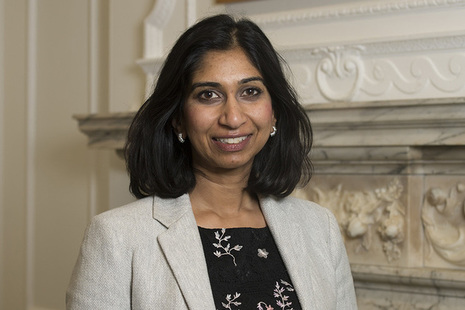Caribbean Film Series at BAM: Unearthing Frantz Fanon, Diaspora Voices & Francophone Cinema
BAM Hosts Powerful Caribbean Film Series in Brooklyn Brooklyn, New York’s BAM (Brooklyn Academy of Music), in partnership with The Luminal Theatre and Third Horizon, hosted a key edition of the Caribbean Film Series. The two-day event, held on October 3rd–4th, brought together films that traverse colonial history, mental health, identity, and power, amplifying both […]

BAM Hosts Powerful Caribbean Film Series in Brooklyn
Brooklyn, New York’s BAM (Brooklyn Academy of Music), in partnership with The Luminal Theatre and Third Horizon, hosted a key edition of the Caribbean Film Series. The two-day event, held on October 3rd–4th, brought together films that traverse colonial history, mental health, identity, and power, amplifying both diasporic and Francophone Caribbean perspectives, as well as African voices with Caribbean connections.
Featured Film: True Chronicles of the Blida-Joinville Psychiatric Hospital
The artistic centrepiece of the festival was True Chronicles of the Blida-Joinville Psychiatric Hospital in the Last Century, a 2024 fiction feature directed by Abdenour Zahzah. The film offers an in-depth look at the period when Dr. Frantz Fanon served as head of the Fifth Ward at the Blida-Joinville Hospital, between 1953 and 1956.
Set in colonial Algeria in 1953, the film recounts how a young Frantz Fanon, born in Martinique, is appointed head doctor at a hospital entrenched in colonial racial segregation. Muslim and Christian wards are divided, and treatment practices, particularly in the Muslim unit, are deeply inhumane. Fanon introduces group therapies, empowers staff with greater responsibilities, opens communal spaces (a café, a football pitch), and works to restore dignity to patients.
The film is 90 minutes long, in Arabic and French with English subtitles and offered a truly broad view of historical Caribbean storytelling.
Themes & Relevance
True Chronicles… is compelling because of its intertwining of colonial violence, mental health, humanising interventions, and moral courage. Fanon’s experiments with institutional psychotherapy are often discussed in academic circles but this film dramatises them, bringing reality to concepts like trauma, alienation, and healing.
It also provides Francophone Caribbean viewers, and broader diaspora audiences, an opportunity to engage with a thinker whose roots lie in Martinique and whose influence on anti-colonial thought, postcolonial psychiatry, revolutionary theory continues to resonate. Especially in moments when identity, race, and mental health are daily public conversations, this film offers both historical grounding and emotive power.
Standout Screening: Kouté vwa (Listen to the Voices)
Another standout screening from the festival was Kouté vwa (Listen to the Voices), the debut feature-length film by Maxime Jean-Baptiste. It was previously shown at the Open City Documentary Festival in London, UK, earlier this year.
The film follows Melrick, a teenage boy spending the summer in French Guiana with his grandmother, Nicole. Through their conversations, the tragic circumstances surrounding the death of Nicole’s son, Lucas Diomar, who was murdered 11 years earlier, slowly unfold.
The Luminal Theater’s promotional material emphasised a Francophone focus, showcasing multilingual films that challenge audiences through French, English, and Creole narratives.
A Curated Collaboration with Community at Its Heart
This collaboration between BAM, Third Horizon, and The Luminal Theatre shows both institutional support and curatorial care. The films selected for screening were not intended for passive viewing, but for active engagement, sparking conversation and offering exposure to stories that are rarely amplified in mainstream cinema.
For Brooklyn and by extension, the larger Caribbean diaspora communities this was a special opportunity to gather, reflect, and connect over film rarely featured or highlighted.
Pushing the Dialogue Forward
This is a marker that the Caribbean Film Series continues to evolve, not only representing Caribbean life, but also pushing into dialogues about colonial legacies, mental health, and global intersections. The stories on screen are deeply local in some ways, yet they resonate far beyond our borders.

























